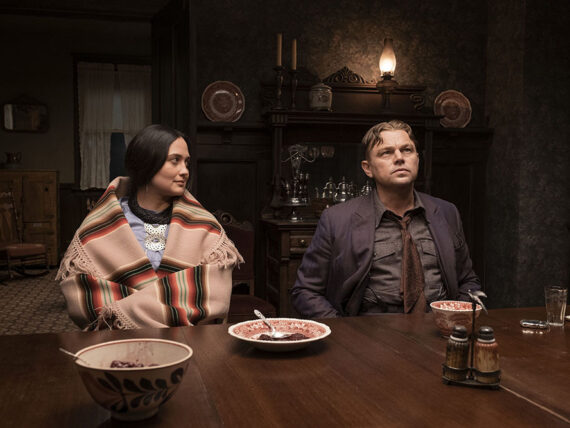A searing portrait of racial inequality, Till tells the true life story of teenager, Emmett Till. The film, directed by Chinonye Chukwu, joins him at age 14. Emmett lives happily in 1950’s Chicago with his mother, Mamie Till-Mobley. We are immersed in this special mother and son relationship from the outset: Mamie (played by Danielle Deadwyler) clearly dotes on her only child. Jalyn Hall, as Emmett, portrays a funny, carefree boy. In the summer of 1955, Emmett is invited to visit his cousins in Mississippi. Mamie – a former Mississippi resident – has serious misgivings, but Emmett is eager to go. Reluctantly she sees him off at the train station, but not before trying to drill into him the necessities of Black life in Mississippi: be careful of what you say, and how you say it. No Sir, and Yes Ma’am, are the correct ways to address white people. Best steer clear of them if you can. But Emmett is too full of excitement to really take in what she is telling him.
As Emmett steps off the train, he is effectively going back in time. While he enjoys a (limited) degree of freedom in Chicago, very little has changed for the Black person living in Money, Mississippi. His cousins may be working on the cotton fields, sharing the profits with the landowner, but their lives remain strictly curtailed. The power dynamic is brutally illustrated as the boys head to their local store, Bryant’s, for some sweets. Emmett is struck by the beauty of the girl working behind the till, Carolyn Bryant (Haley Bennett). He remarks that she could be a movie star. She bristles with indignation as he cheekily wolf whistles. The tone immediately shifts. Carolyn has gone to fetch her gun. The boys drive off unscathed as she fires shots at them, but the incident is not forgotten. Carolyn’s relatives track down Emmett, and he is dragged from his cousin’s home in the middle of the night. He is never seen alive again.
Emmett’s mutilated body is later found in the Tallahatchie River. Mamie insists on having him brought back to Chicago, and asks for an open-casket funeral. Mamie invites two Black publications – Jet magazine and the Chicago Defender – to publish graphic photographs of Emmett’s corpse. As Emmett’s murderers are arrested, and the trial begins, the crime has captured the nation’s attention. But as Mamie takes to the stand, she realises that justice itself will be elusive.
Till refuses to spare its audience. Chukwu’s camera is unflinching: the details of how Emmett suffered are grievous, and at the heart of the film is how Mamie reacts to her world falling apart. But while Deadwyler’s performance is forensic in its study of grief, the film in its third act, pulls out to show us the bigger picture surrounding Emmett’s death. By 1955, the Civil Rights Act was less than a decade away. The Act, signed by Lyndon Johnson, formally prohibited segregation in schools and employment discrimination based on race. However, the screenplay from Michael Reilly, Keith Beauchamp and Chinonye Chukwu notes that the tidal shift was happening much earlier: bubbling away in the background is the campaign to get Black people registered and exercising their right to vote. In the presidential election of 1960, the Democrat candidate, John F. Kennedy, is estimated to have secured 70% of Black votes. Even in mid-century Mississippi, political agency matters.
What makes Till particularly interesting is that this is a nuanced look at race within 1950’s America – not all states are created equal. Mamie’s life in Chicago – good house, decent job – are in stark contrast to what is endured by her Mississippi cousins. But Chukwu has an eye for nuance: at her desk job, Mamie works quietly, the only Black woman in her office. She is dressed smarter too: anything more casual would draw comment. It is the insidious, layered quality of discrimination Mamie faces in Chicago: in Mississippi, the rules of survival are much more crudely drawn. The jolting effect of this culture change is seismic: it is little wonder that Emmett struggled to comprehend it.
In a coda that is depressingly appropriate for this film, Till has hit the headlines as Danielle Deadwyler did not make the Oscar shortlist for Best Actress. Despite being rated an “Oscar cert” by critics, Deadwyler’s name was not included. In an interview, Chukwu accused Hollywood of “unabashed misogyny towards Black women”. Deadwyler’s omission is hard to explain. Her performance; a beautifully measured, profound interpretation of a mother’s love, is easily comparable to Cate Blanchett for Tár, and Michelle Yeoh for Everything Everywhere All at Once. The history of the Oscars is littered with questionable choices, and this will be just a speed bump for Deadwyler as her career progresses, but denying her a nomination for this role is not a good look for the Academy.
Till shines a light on the hypocrisies of the age, but it is Chinonye Chukwu’s determination to tell this story from a woman’s perspective – and Deadwyler’s powerhouse portrayal, turning grief into action – that ultimately raises this film.
Till is screening at Plymouth Arts Cinema from Friday 3rd – Thursday 9th February.
Reviewed by Helen Tope








Comments
No comment yet.